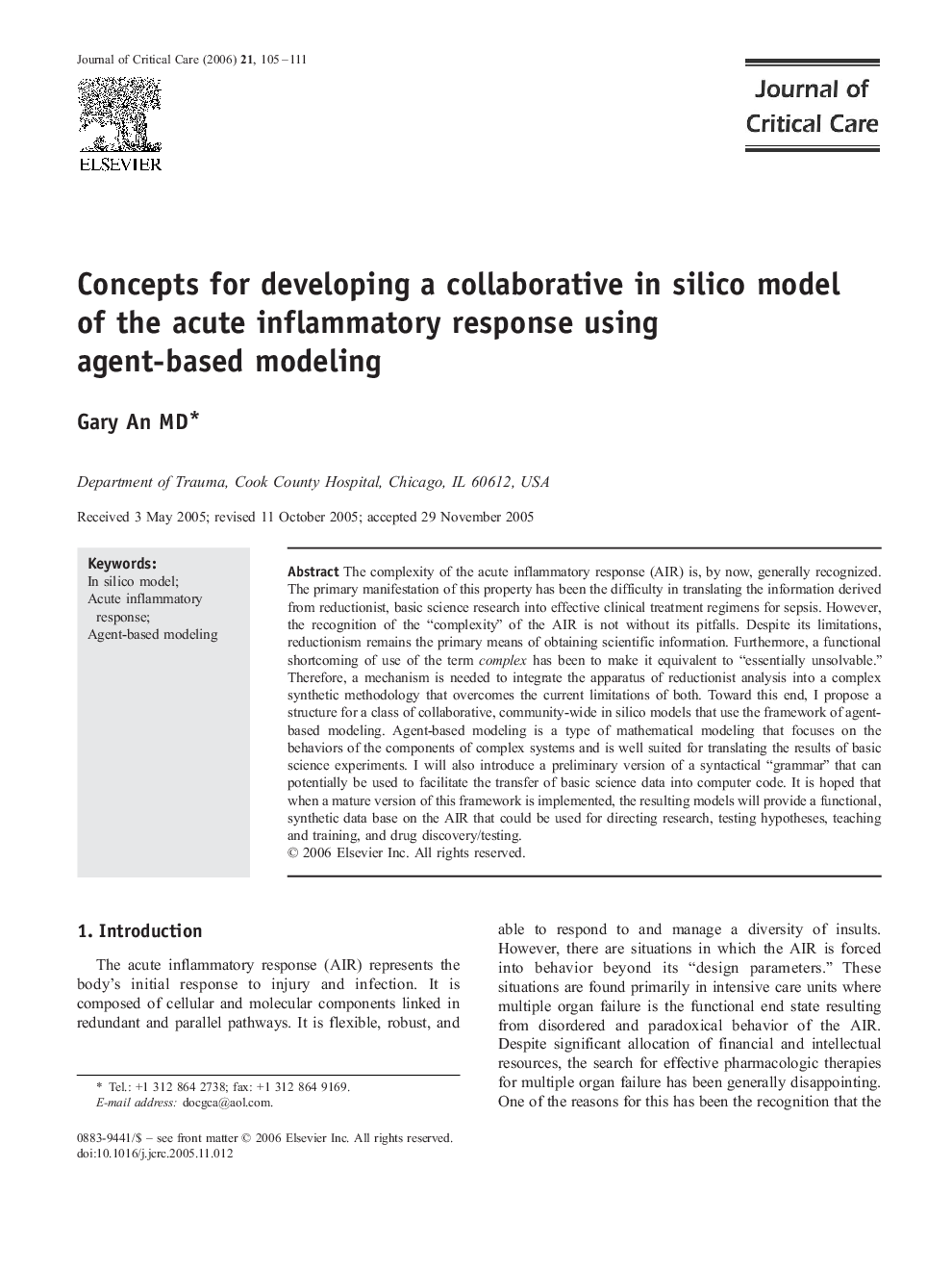| Article ID | Journal | Published Year | Pages | File Type |
|---|---|---|---|---|
| 2765441 | Journal of Critical Care | 2006 | 6 Pages |
The complexity of the acute inflammatory response (AIR) is, by now, generally recognized. The primary manifestation of this property has been the difficulty in translating the information derived from reductionist, basic science research into effective clinical treatment regimens for sepsis. However, the recognition of the “complexity” of the AIR is not without its pitfalls. Despite its limitations, reductionism remains the primary means of obtaining scientific information. Furthermore, a functional shortcoming of use of the term complex has been to make it equivalent to “essentially unsolvable.” Therefore, a mechanism is needed to integrate the apparatus of reductionist analysis into a complex synthetic methodology that overcomes the current limitations of both. Toward this end, I propose a structure for a class of collaborative, community-wide in silico models that use the framework of agent-based modeling. Agent-based modeling is a type of mathematical modeling that focuses on the behaviors of the components of complex systems and is well suited for translating the results of basic science experiments. I will also introduce a preliminary version of a syntactical “grammar” that can potentially be used to facilitate the transfer of basic science data into computer code. It is hoped that when a mature version of this framework is implemented, the resulting models will provide a functional, synthetic data base on the AIR that could be used for directing research, testing hypotheses, teaching and training, and drug discovery/testing.
